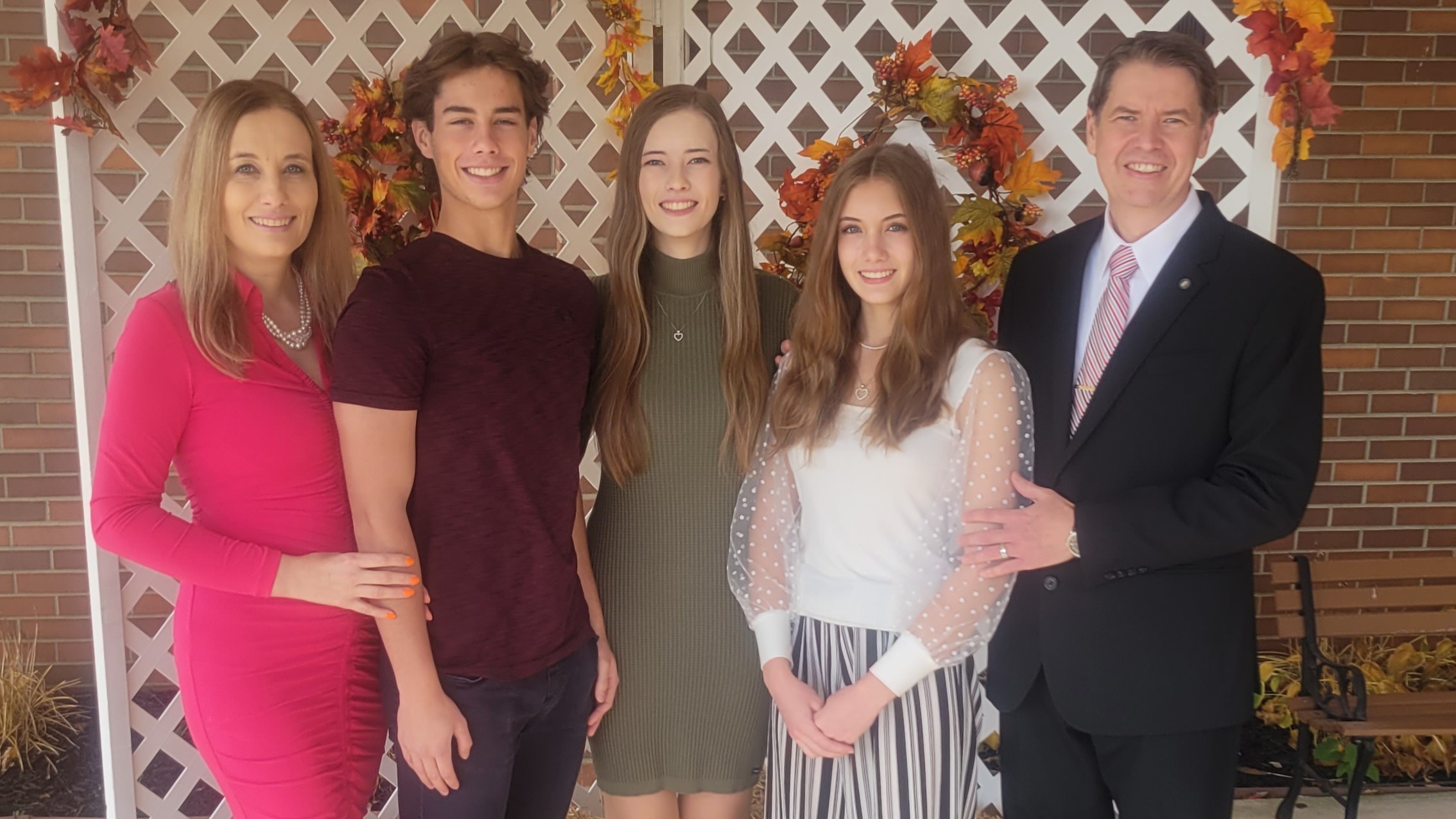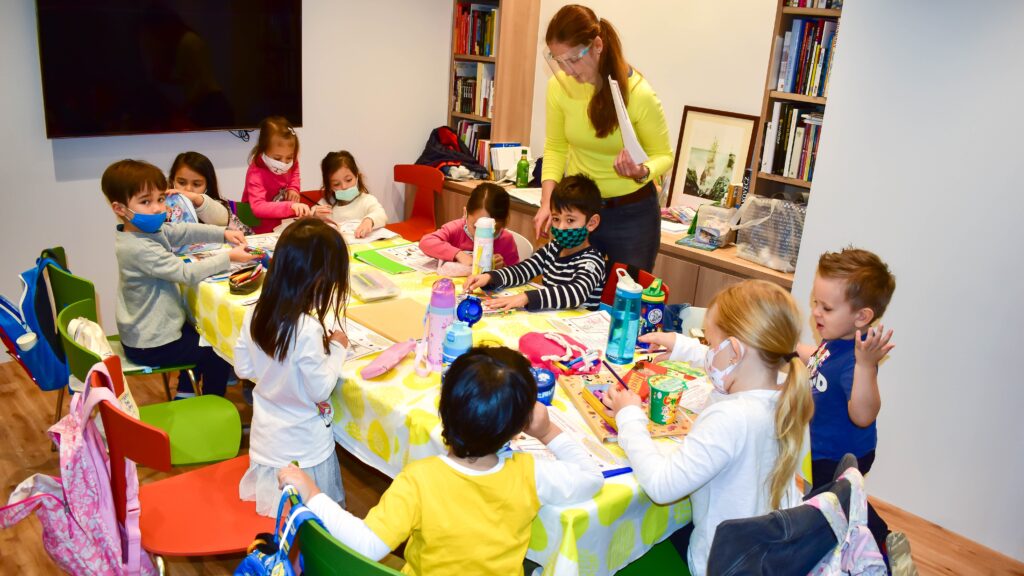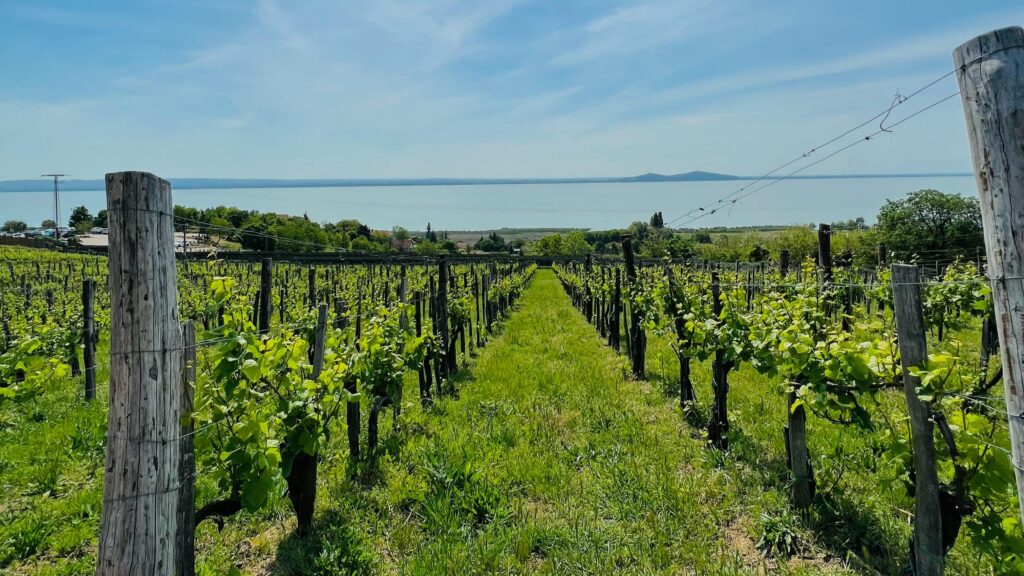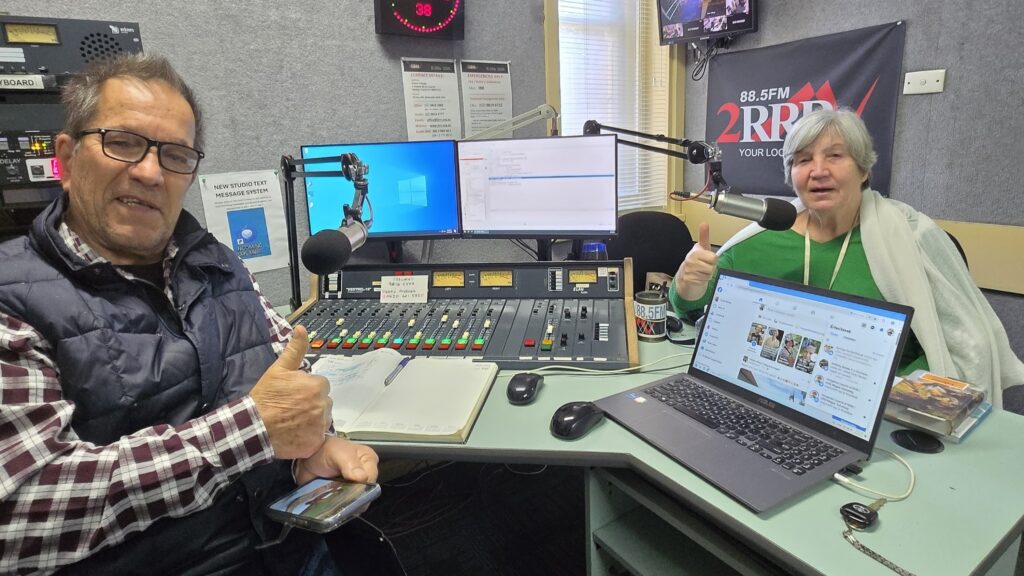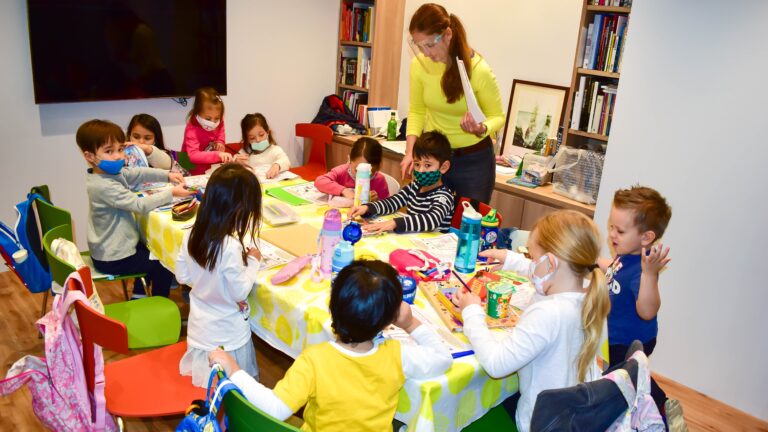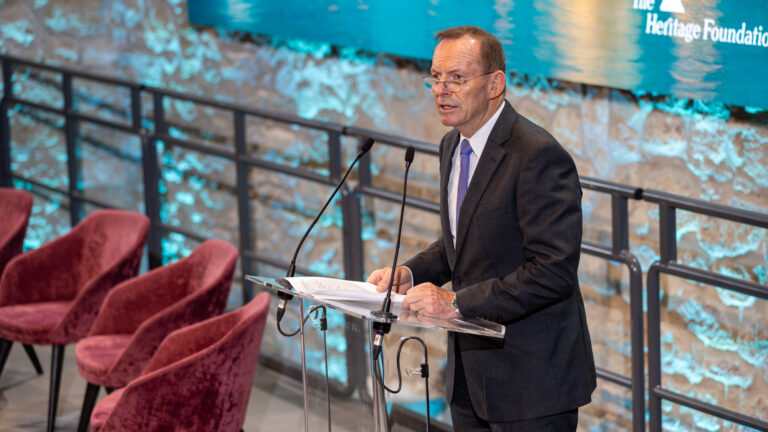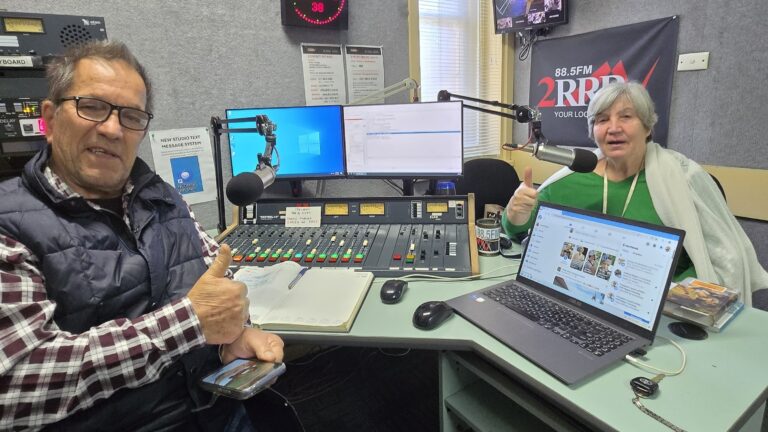Rt. Rev. Dr. Csaba Krasznai, Hungarian Reformed Bishop of the Calvin Synod Conference of the United Church of Christ and Honorary Consul of Hungary, and his wife, Beáta Krasznai, a teacher, psychologist, principal of the church’s Sunday school and the Nebuló Hungarian Language School, have been living and serving in Cleveland for more than 20 years. They recently celebrated their 23rd wedding anniversary and are parents of three young adults.
***
A Little History of the Hungarian Reformed Church in Cleveland
The first Hungarian Reformed congregation in the U.S., the First Hungarian Reformed Church, was founded in Cleveland in 1891 at the initiative of Pastor Gusztáv Jurányi, a delegate of the Hungarian Reformed Synod, during whose ministry the first Hungarian Reformed church building in the U.S. was also erected. The congregation grew rapidly, as the biggest wave of Hungarian immigrants arrived at the very end of the 1800s and early 1900s. Later, additional waves of immigrants after World War I and II, then the 1956 revolution and freedom fight strengthened the congregation. As a result, for most of the 20th century, the largest single-block Hungarian community in the U.S. was established in Cleveland: in fact, Buckeye Road and its vicinity were called ‘Little Budapest’ or ‘Little Debrecen’.
The Reformed Church was started by 60 immigrants from the Nyírség region of Hungary. At first they worshiped in rented rooms. Many of them didn’t yet have their own homes, still they wanted to build a house for God first. In 1894 the wooden church opened its doors, and by 1904 the congregation could meet in a stone building. In 1949, the largest church of the Hungarian Reformed community in the U.S., which is also unique among American Reformed churches and can accommodate thousands of people, was consecrated. From the 1970s–1980s, similarly to other American cities where the Hungarian population lived in blocks (such as New York; Passaic, Garfield; and New Brunswick in New Jersey), the influx of massive numbers of recent immigrants of other nationalities, mostly of non-European origin, gradually pushed the Hungarians out of the areas they had previously inhabited. The Clevelanders made a difficult decision: they sold the ‘cathedral’ church building and had built a modern church by 1996, still their home today, in a suburban section of the city called Walton Hills. They have been involved in the work of the Calvin Synod of the United Church of Christ in America from the beginning, and became a member of the Hungarian Reformed Church in 2019.
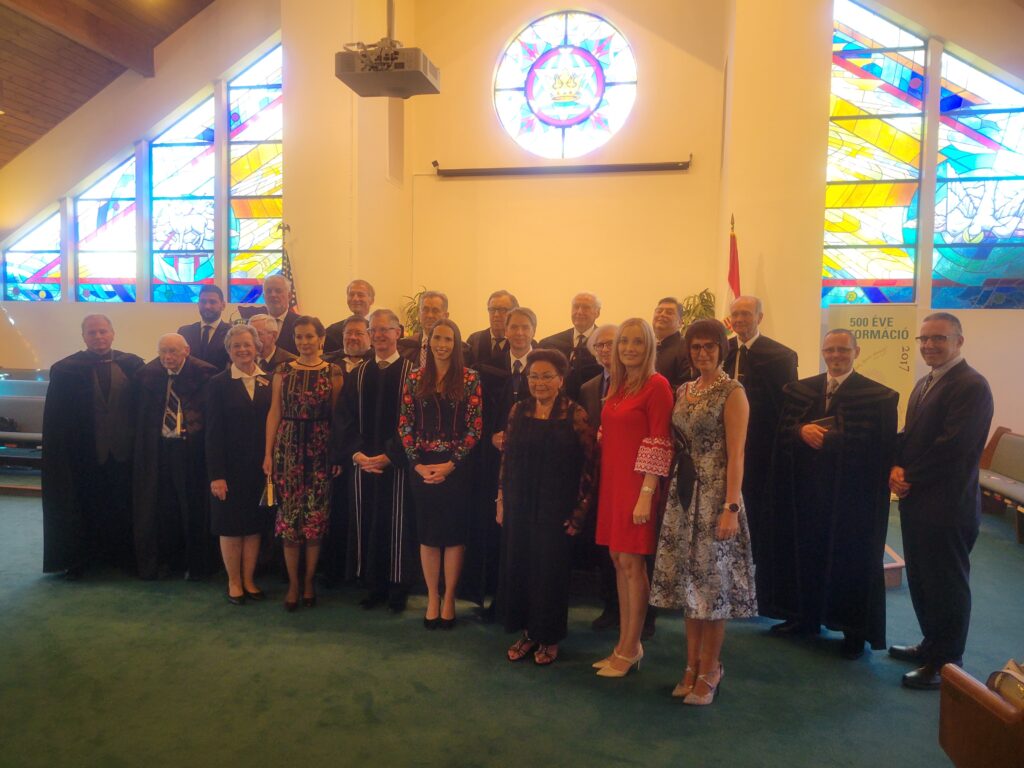
There is lots of information published about the beginnings on the church’s website, but less about the present, so that was my first question to the bishop. ‘The explosive growth of Hungarian church communities after the great immigration wave in the early 1900s was also due to the fact that churches were not only places of worship and faith, but also took on the role of nurturing Hungarian identity and culture…Wherever we go in America, faith, Hungarian culture, and identity go hand in hand; and while it’s clear to me that faith comes first, because that’s the mission of the church: to live and pass on the faith of Christ, the two are intertwined in the diaspora. Our churches have an important special mission; we are bastions—unlike even the churches in Hungary and the Carpathian Basin, where those are mainly the places of religion and faith. That’s why it’s typical that people who aren’t (primarily) attracted by their faith, but want to build and fulfill their Hungarian identity, come to a church community program—and that’s not a problem. In fact, I see it as a mission field: for those who don’t (yet) believe in God, we can show them another way through the help of the Holy Spirit. From this point of view, the historic growth of the Hungarian Reformed community, which peaked in our church at the end of the 1950s with 3,500 people, can also be better understood,’ the bishop explained.
There is no public record available on the current membership of the Calvin Synod churches, because only the Synod has such an official document, which otherwise shows that they are ‘a dwindling, aging, and financially challenged congregation.’ The Synod currently has 20 congregations from New York to Chicago and from Buffalo to Florida and four in Cleveland, most of which have English-language services, and out of which perhaps 35–40 per cent are viable, continued the bishop, adding, ‘they’re struggling, but they keep their ministry, like we do, because they have a permanent pastor—that’s one of the keys to survival.’ That’s why the Hungarian government and the Reformed Church in Hungary have launched a pastoral scholarship mentoring program, in which they assign a Hungarian pastor or couple with a six-to nine-month rotation to serve at a base, from where they serve in the surrounding or more distant dispersed congregations, and who, upon returning home, can enrich their own community with their spiritual experience and expertise—helping the diaspora without exacerbating the equally severe shortage of pastors back home.
An Americanized Hungarian Reformed community
When the Krasznai couple arrived in Cleveland in May 2003, they found that their congregation was completely Americanized: there was only one Hungarian service a week and no other events or programs. ‘It was a shock for us, because previously a pastor from Hungary had served here; but our predecessors had stayed for five years each at the most, which shows that something wasn’t right. Our congregation, the east-side Reformed Church was amongst the more Americanized Hungarian churches anyway, while the west-side Reformed Church was more Hungarian at that time. Thus, when we arrived, we immediately put a lot of emphasis on starting Hungarian sessions for the small but strong core of the church.’ That meant about 15–20 older, mainly 56ers and some younger members, about 50–60 in all, mostly middle-aged and older; children and young people were hardly ever present in the congregation. Bishop Csaba Krasznai introduced two ministry innovations: small groups for the American members, not necessarily in church—he had learned this in Gazdagrét (part of Budapest, Hungary) under pastor Dr. András Lovas, and trained laymen in Cleveland using this method—; and Bible studies for young adult Hungarians. Both initiatives were successful, with the latter seeing an explosion of growth—the congregation was clearly hungry for new, fresh pastoral leadership, and it turned out that many of the young people wanted to be part of the Hungarian community. ‘We had a steady weekly attendance of 20 to 30 people at the Bible study in Hungarian, but at the Easter and Christmas events, new people showed up, we had even 70 people gathering.’
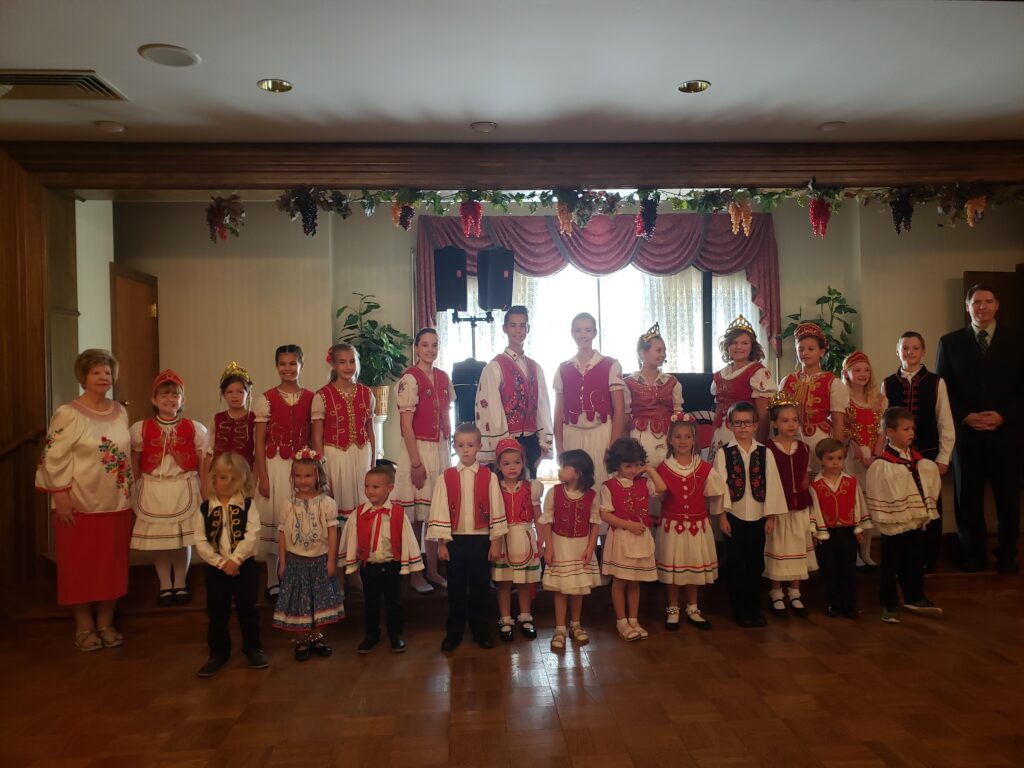
In addition to these initiatives, there was (and still is) a lunch at the church once a month, which isn’t only to raise funds, but also to build community. The congregation celebrates Hungarian church and national holidays, in addition to American ones. They try to combine the opportunities and tasks of both cultures, since the second and third generation is very important to them—without them the congregation wouldn’t have any future—and also have to consider those who have no Hungarian roots at all but have joined them in recent years. They are happy to participate in joint worship and special celebrations and respect each other’s traditions. Their biggest challenge is to provide programs and spiritual support for various groups of young people in a way that everyone can find what they are looking for, while also creating a united congregation.
Bea explained that in 2010 they stopped the Bible studies, which had been going steadily for six years, because it had effectively become a Hungarian club. ‘We hoped that participants would integrate into the life of the church, but they didn’t: they visited us on Fridays, but didn’t show up on Sundays. Meanwhile, our children were born, we both studied—I went to university, Csaba did his doctoral studies—so there were other needs.’ She established the Sunday school to run simultaneously with the 9:30 am Hungarian service, and then the Hungarian school during the 11 am English service (with the English Sunday school held in another room). The former focuses on Bible study, prayer, and praise songs, the latter teaches the children to read and write in Hungarian. The Nebuló Hungarian Language School officially registered by the State of Ohio doesn’t aim to teach the Hungarian school curriculum, but to provide a comprehensive cultural education in Hungarian literature, grammar, history, and geography. The Covid pandemic didn’t help them, and many from the churchgoer group have moved away. Now they have five groups: the largest are the 16–18 year-olds, who started 9–10 years ago; the youngest are 3–4 year olds, and there is an English-speaking group for whom cultural activities are often held.
‘Our children read Hungarian quite well, but several others had difficulties with learning a Christmas poem in Hungarian. That’s why I started the Hungarian school. We wrote our own curriculum for each of them. I’m proud that we’ve become one of the most visible schools in town because we often take the stage for city programs. Our school is a weekend Hungarian school that we keep on Sundays because our goal with this, as with everything else, is evangelizing. Some families you never see in church, but their children come not only to the Hungarian school, but also to the Sunday school—we have beautiful and sophisticated crafts, that’s why the children love it—, and there they hear about how you invite God into your heart, how you follow him. We send them on summer vacation with the idea that Jesus will be with them during that time, too; and if they have any problems, how they can talk to Him about it. Being Hungarian is very important to us, but faith is even more important: when sometimes the two services are combined, we may drop the Hungarian school, but never the Sunday school,’ she explained.
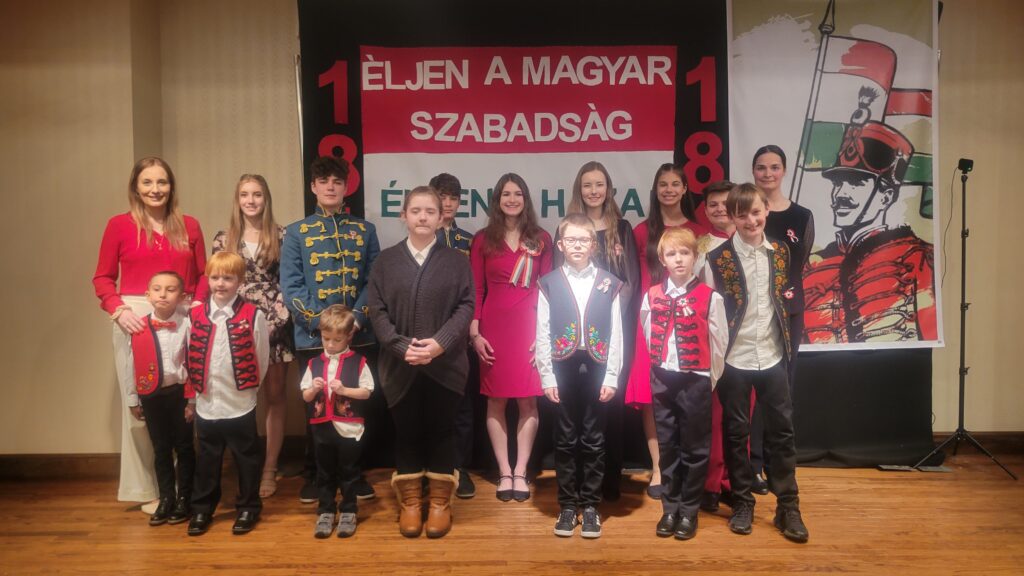
Csaba Krasznai admitted: their attendance is small compared to the thousands of people of Hungarian origin in Cleveland and its vicinity. One reason for this, he says, is that immigration has declined over the past few decades, and those who don’t settle for the long-term don’t establish new relationships or enter into existing communities. Another reason is that there are many small Hungarian organizations with many programs, thus the relatively large numbers of Hungarians are fragmented. The United Hungarian Societies, which brings together eight churches and 15 secular organizations, tries to coordinate programs as an umbrella organization, but there is an unavoidable overlap because of the number of events. ‘The number of available Hungarian programs might exhaust and overwhelm people. By comparison, in Los Angeles or Chicago, there are far fewer major events. As a new Honorary Consul since last year, I’ve also seen how many Hungarians live here that I’ve otherwise never met in the past 20 years. Some Hungarians are very isolated from the Hungarian community, from each other and from community events, too. It’s a big question: if someone considers himself Hungarian, why doesn’t he take part in a 23 October or a 15 March commemoration? We have on the average 250 people present at these celebrations, but we should have many more.’
Bea added: the annual Scout Day with up to 3,000 guests is exceptional, because it attracts not only Hungarians and because it’s well-known, with many people traveling there from far away. ‘And we haven’t even mentioned the Hungarians from Akron, Ohio, who are just 20 minutes away. There are many who are building their own organizations—but disregarding others in the community isn’t the right way to increase them. We aren’t pessimists, we see these numbers realistically. It should be added that the organizations and congregations that have survived the past 100 years were those that remained open to the next generation. Some of the immigrants haven’t taught their children Hungarian, because they immigrated with the idea that they needed to assimilate and only used Hungarian as a secret language, but if we told them they aren’t Hungarian, they would be very offended, because their name is Hungarian and they make chicken paprikash just like back home. On Buckeye Road, you still see a lot of Hungarian signs and signboards decades after the vast majority of Hungarians and their organizations left the neighborhood. But you wouldn’t dare to park there now or to go out after dark. If we hadn’t moved, we wouldn’t have a community now. Our Chief Elder, Dr. Albert Ladányi, doesn’t speak Hungarian, but he kept his Hungarian identity; many from the congregation haven’t been to Hungary, but they have put their lives into being Hungarian. It may seem strange, indeed, but the community wouldn’t have survived without them. By the way, nowadays many of them are sorry for not speaking Hungarian. I don’t have the letter H on my car or a Hungarian flag on my house, nevertheless the language is very important to me. I always worried whether my children properly understood Hungarian, but was relieved when I found out that they even understood jokes. I accepted their vocabulary would never be like ours, but they were given such a strong foundation that when they visit Hungary, most people don’t realize that they didn’t grow up there.’
From Debrecen to Cleveland through Toronto
In the late 1990s Csaba spent two years in Washington, DC serving as an associate and then a co-pastor under Rev. Dr. Imre Bertalan, where he also earned his second master’s degree. In 199, he passed his ordination exams at the Debrecen Reformed Theological University, and in 1999 he returned to Hungary; but he still had a desire to serve in the diaspora, which his superiors knew about, so they sent him to Toronto, Canada for six months to serve as a substitute for the Hungarian United Church of Toronto. He was called back as a full-time pastor, but when certain administrative issues arose, with the help of Imre Bertalan and Albert Kovács, and with the encouragement of Maria Chikes, who organized the previous scholarship program, he applied for the American pastoral community, and ended up in Cleveland.
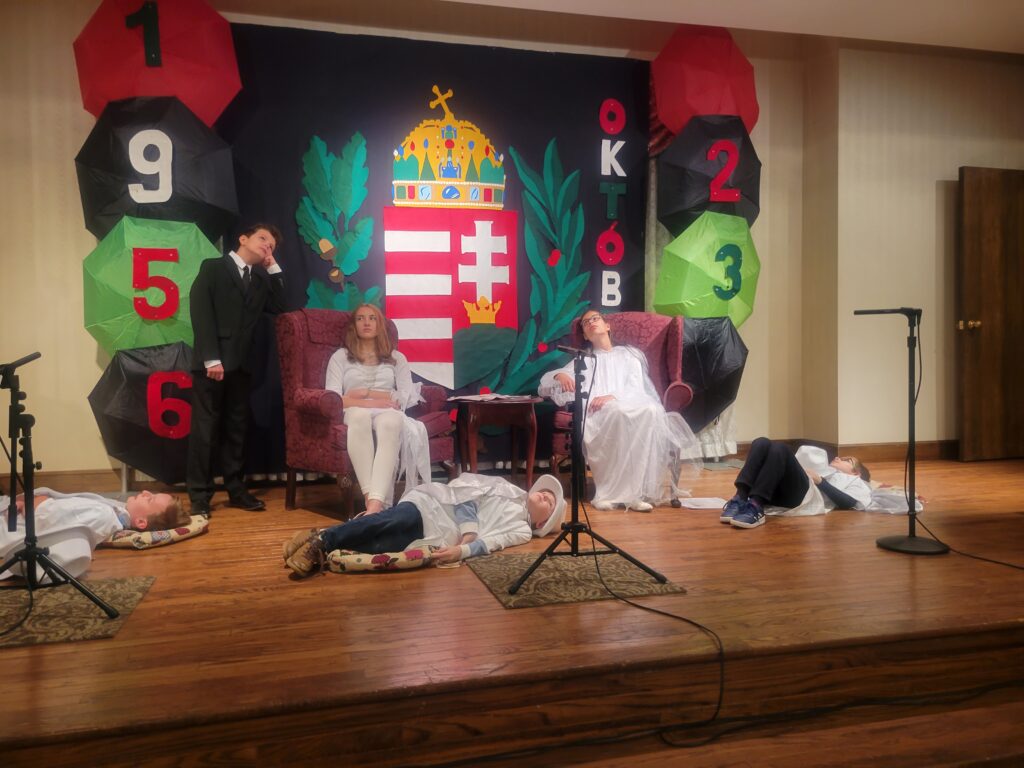
Bea added: they were married in 2000, and turned down the invitation to Toronto twice, because they were supposed to get married, but when the third invitation came, they changed their wedding date and went to Canada for six months. A year later they returned and their first child was born there. They knew each other from their university years in Debrecen, where she graduated as a teacher. ‘At college, we had a very strong community of believers. I went to work in Budapest looking for a new community for myself, so I ended up at the Timothy Association, Campus Crusade for Christ in Hungary, where I worked with university students. We organized spiritual sessions for hundreds of students, so I gained a lot of organizational skills and experience. I had acquired in practice what Csaba had been taught in theory during his theology studies, which was a great gift as a pastor’s wife. I complement my husband well and that’s shown in our children. I always worked part-time to be present for them, because we had no other help.’
They’ve recently had their 23rd wedding anniversary, and while talking about that they muse about how many of their acquaintances are divorced despite having religious backgrounds. ‘I remember when the speaker at a Timothy lecture told us: in 20 years, 70 per cent of the people sitting here won’t be following Jesus. It was shocking. We were enthusiastic young people—of course we didn’t believe him. I don’t know if he was right in the end, but many who live side by side for 10–20 years in the end seem to have separate goals. I also had to adjust to my husband’s path: he did his doctorate, became a bishop, traveled, while I stayed at home with the kids. After a while, I needed a slice of life of my own, so that I could also grow. This is the school, but also my own profession. Keeping the family balance over the years has been such an art.’ As a mother of three, Bea completed the degrees in School Counseling in 2012 and then in Clinical Mental Health Counseling, and became a Licensed Professional Counselor in 2019. She has also been a pastoral care worker ever since. She worked in a private Christian counseling center for three years, where she mainly worked with married couples and teenagers with all kinds of problems. At one point she was seconded to a high school for pregnant teenagers. ‘It’s a very responsible job. Keeping up to date with law changes, working with authorities, it required a very precise paperwork. I ultimately left them for health reasons. I’m going to open my own practice, which is also a big responsibility. I have to renew my license every two years. But I love it, and I’m very grateful to God for these occasions as it allows me to prove: Christians are accepting, not judging.’
When I asked about how their children fit in their very active life, they pointed to their similarly active lives. Ráhel, 20, is a second-year student in accounting and Spanish and her pastime activities include acting and cello playing. Joel, 18, wants to become a doctor; Olivia, 16, goes to a private Christian school, plays piano and is a competitive rock climber. Csaba recalled that he had once received a piece of advice to enjoy every moment with his children, which has proved very true. ‘We put a lot of emphasis on family life, we do a lot of activities together, which makes us united. We always lived our faith naturally and talked about it that way. We prayed and read the Bible together every night. It’s harder now, everyone has their own lives, but we still try to have the family prayer together, at least weekly.’ Bea added: ‘Ráhel’s great spiritual gift is that she talks about God and her faith very easily. Once one of her public school teachers even complained about it, but it had its fruit: a Bible study group has started thanks to her. Now she is continuing evangelism at her university; her faith is very visible. The others at first “only” wanted to be part of the “good team”, but over time they also deepened their faith. I believe we’ve laid a good foundation,’ she summarized, adding that their age group has dropped out of the church—it’s a common phenomenon that they stop attending the church and the congregation after confirmation—, so she has put a lot of effort into ensuring that the community of Gazdagrét also welcomes her children when they are in Hungary.
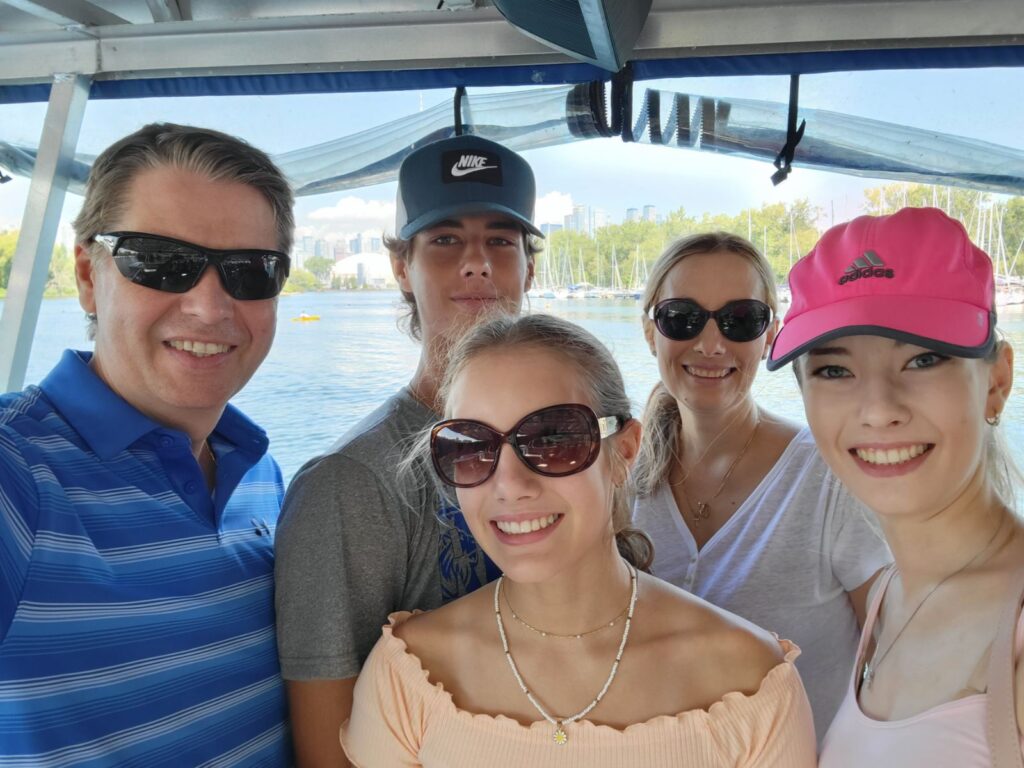
They emphasize that it was always natural for them to speak Hungarian at home, and visit Hungary every summer for six to nine weeks, where they had contact with their grandparents, went to many camps and participated in the life of the congregation in Gazdagrét, with whom they go on family camps in Balatonszárszó each summer. ‘These visits have very much shaped their Hungarian identity. We have a very large circle of friends in Hungary, which we have managed to keep from such a distance for 20 years and pass it on to our children. Ráhel’d love to move to Hungary, but the two younger ones have become very American, they feel much more at home in the U.S. They love going to Hungary, but they are happy when we come back. Nevertheless, when our son contemplated Arizona while preparing for college, one of his first questions was: are there Hungarians there? We expect them to get involved in the Hungarian community wherever they live.’
Regarding their own future, the husband’s answer was at first very brief: ‘Only God knows.’ Then he continued: ‘We’ve been asked many times why we don’t move back to Hungary. We’ve thought about it and even planned it at one point, but God has always arranged to keep us here. After the first year, we extended our visa for four more years, then we won the green card at the lottery—another miracle—, then the doctoral program, then I became an auxiliary bishop and later bishop. My term runs until 2025, but last year I became an Honorary Consul, which means loads of representation, authenticating documents, and physical assistance—and is a lifetime appointment. I can’t leave Ohio easily any more. God always prepared the way for us and put us in the right place: we have a mission to fulfill here, both in terms of faith and Hungarian identity—this is where we belong, at least for now.’ His wife added: in every 3–5 years they’ve examined whether their place was still here and what guided them. She recalled that when they bought their own house, her husband was called to be a pastor in Sárospatak, Hungary, which would have meant teaching theology—a very exciting call for him, but they decided to stay. ‘It’s not up to us. We are still open to where God is calling us; and if I don’t see it very specifically, I’ll be where my children are. Since we are very well connected, I trust we won’t be so scattered. We’ll see about the rest…’
Read more Diaspora interviews:

